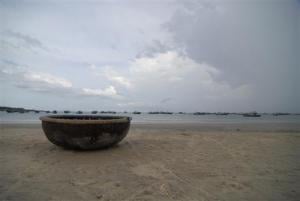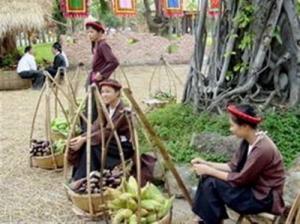Jackfruit (Quả Mít)
/photo_45.jpg)
Considered a delicacy by many, the Jackfruit (Quả Mít) is a native to Asia though known to originally come from India. It could have many shapes and sizes, but generally, they are oblong or pear shaped. A single jackfruit can grow up to 90 cm long and can weigh up to 44 kg. Its exterior is usually green, and gradually turns yellowish as it ripens. Around it are numerous sharp hexagonal spines similar to the Durian, yet slightly blunted on the ends. Handling the jackfruit by hand is still possible compared to durian.
To eat the jackfruit, a knife is needed to cut the big fruit in half or in much smaller parts. Once open, the inside yields numerous golden yellow bulbs, each enclosing a single brown pit. The pulps are the meat itself, are very sweet with just a little hint of tanginess to it. Such could be eaten fresh or boiled.
The name Jack is believed to be a Portuguese mispronunciation of a Malay word “round”. But the fruit is more popular for its sweet tempting smell. Jackfruits are planted densely in the Mekong Delta Region. In the south, the harvest season is around March to June. The wood from its tree is very strong and are often made into furniture or to construct houses. Oddly, the jackfruit grows on any part of the tree, in its trunk, branches, and even on the roots. There are several species of jackfruits in Viet Nam, divided into two main groups: the dry jackfruits (Mít khô) characterized by dry and crunchy flesh, and the wet jackfruits (Mít ướt) with softer flesh and a juicier pulps.









